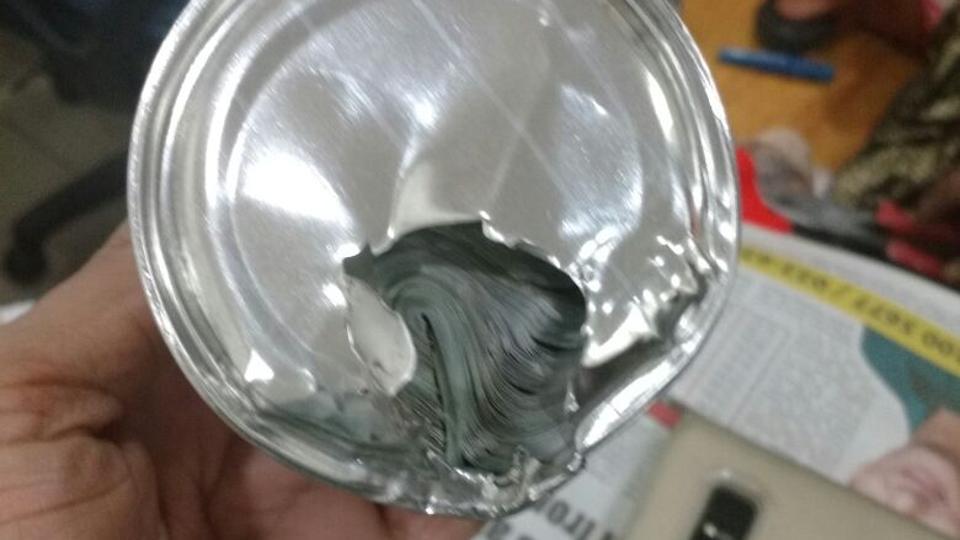
Foreign currency worth Rs1.72 crore seized at Mumbai airport, three arrested
Jordan shoes shipped from China.
Customs officials said the 400 pairs of various styles of Air Jordans arrived Dec. 15 in seven parcels shipped from China and were seized when they arrived at a facility near Washington Dulles International Airport. The officials said the shoes, if authentic, would have a suggested retail prize totaling $54,715.
CBP said officers examining the shipment suspected the sneakers were counterfeit and the agency’s Consumer Products and Mass Merchandising Centers for Excellence and Expertise verified with Nike that the shoes were not authentic. The shoes had been destined for an address in Alexandra, Va., investigators said.
“Customs and Border Protection will continue to work closely with our trade and consumer safety partners to seize counterfeit and inferior merchandise, especially those products that pose potential harm to American consumers, negatively impact legitimate business brand reputations, and potentially steal jobs from U.S. workers,” said Daniel Mattina, CBP acting port director for the Area Port of Washington, D.C.
https://www.upi.com/Customs-officers-seize-55000-worth-of-fake-Nike-Air-Jordans/8071515595327/
5. Foreign currency worth Rs1.72 crore seized at Mumbai airport, three arrested.
14, January 2018 l Hindustan Times
In a huge haul of foreign currency, three Mumbra residents were arrested on Saturday at the Chhatrapati Shivaji International Airport (CSIA) with US dollars worth Rs1.72 crore.
The trio was held before they could board a flight to Dubai. “This is the highest seizure at a single time since the past one year,” said a senior Air Intelligence Unit (AIU) officer of the Mumbai Customs. The accused have been identified as Moin Shaikh, Nizamuddin Shaikh and Anam Shaikh, all aged between 25 to 30. “The youngsters are carriers and were working for as less as Rs10,000 each for smuggling the currency,” the officer said.
Acting on a tip-off, the trio was intercepted after they checked-in at the airport. A search resulted in the recovery of US $ 2,75,000, equivalent to Rs1.72 crore. Out of the total currency recovered, Moin and Nizamuddin had kept $5,000 (Rs3.17 lakh) each in their pockets. The rest was kept in 10 tins of cosmetics and food products kept in their checked-in luggage. “The tins were resealed properly,” said the officer.
Lear More
Customs officers seize $55,000 worth of fake Nike Air Jordans
9, January 2018 l NewsX
Directorate of Revenue Intelligence (DRI) on Tuesday arrested fake currency note handler, Mataur Rehman who happens to be a resident of Malda. He is being brought to Delhi for detailed interrogation. Earlier, an investigation had suggested that there was a massive supply of counterfeit Indian currency from Malda villages in West Bengal. The DRI had earlier arrested a resident of Patna called Ram Prasad in connection with the racket from Old Delhi Railway Station. Both the accused have been arrested with Rs 2,000 denomination notes worth Rs 4 lakh.
Earlier, DRI had informed Reserve Bank of India (RBI) that two operators had been indulging in the selling of fake Indian counterfeit notes in and around Delhi. Since the demonetisation drive, during which new Rs 2000 notes were introduced, fake notes have been seized from many places across the country. Earlier, fake currency worth Rs 48,000 in the form of Rs 2000 notes were seized from Mathura. two people were also arrested in relation to the case. However, the supplier of fake notes had managed to flee from the spot before the raid by the police.
4. Customs officers seize $55,000 worth of fake Nike Air Jordans.
10, January 2018 l UPI
U.S. Customs and Border Protection said officers in Virginia seized nearly $55,000 worth of counterfeit Nike Air Jordan shoes shipped from China.
Customs officials said the 400 pairs of various styles of Air Jordans arrived Dec. 15 in seven parcels shipped from China and were seized when they arrived at a facility near Washington Dulles International Airport. The officials said the shoes, if authentic, would have a suggested retail prize totaling $54,715.
CBP said officers examining the shipment suspected the sneakers were counterfeit and the agency’s Consumer Products and Mass Merchandising Centers for Excellence and Expertise verified with Nike that the shoes were not authentic. The shoes had been destined for an address in Alexandra, Va., investigators said.
“Customs and Border Protection will continue to work closely with our trade and consumer safety partners to seize counterfeit and inferior merchandise, especially those products that pose potential harm to American consumers, negatively impact legitimate business brand reputations, and potentially steal jobs from U.S. workers,” said Daniel Mattina, CBP acting port director for the Area Port of Washington, D.C.
https://www.upi.com/Customs-officers-seize-55000-worth-of-fake-Nike-Air-Jordans/8071515595327/
Lear More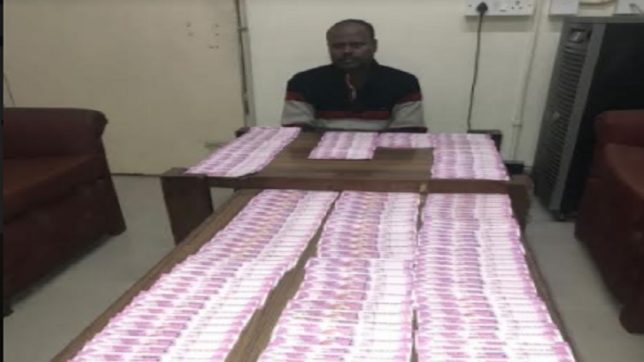
DRI arrests fake currency handler; seizes Rs 2000 notes from his possession
Directorate of Revenue Intelligence (DRI) on Tuesday arrested fake currency note handler, Mataur Rehman who happens to be a resident of Malda. He is being brought to Delhi for detailed interrogation. Earlier, an investigation had suggested that there was a massive supply of counterfeit Indian currency from Malda villages in West Bengal. The DRI had earlier arrested a resident of Patna called Ram Prasad in connection with the racket from Old Delhi Railway Station. Both the accused have been arrested with Rs 2,000 denomination notes worth Rs 4 lakh.
Earlier, DRI had informed Reserve Bank of India (RBI) that two operators had been indulging in the selling of fake Indian counterfeit notes in and around Delhi. Since the demonetisation drive, during which new Rs 2000 notes were introduced, fake notes have been seized from many places across the country. Earlier, fake currency worth Rs 48,000 in the form of Rs 2000 notes were seized from Mathura. two people were also arrested in relation to the case. However, the supplier of fake notes had managed to flee from the spot before the raid by the police.
Lear More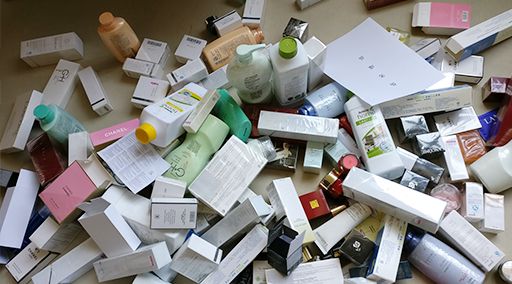
Large Number of Fake Korean Cosmetics Seized at Hong Kong Customs
A large number of fake South Korean cosmetic products is circulating in Chinese-speaking countries.
According to news outlets in Hong Kong, including Wenweipo, on January 2, Hong Kong Customs officers found 5,200 South Korean, Japanese and European knock-off cosmetics worth HK$670,000 (US$85,742 or 91.19 million won) for two days from December 20.
The fakes were mostly South Korean make-up and skincare products such as Amorepacific’s Sulwhasoo, Innisfree and Laneige. France’s Chanel counterfeit perfumes and Bioderma bogus products were also found.
Hong Kong Customs cracked down on fake cosmetic products two times in 2017. They seized 755 knock-off cosmetics with an estimated market value of about HK$100,000 (US$12,794 or 13.65 million won at the end of September last year. After the first seizure, 120 investigators were called in to an extensive raid and found counterfeit cosmetics storage facilities last month.
Lear More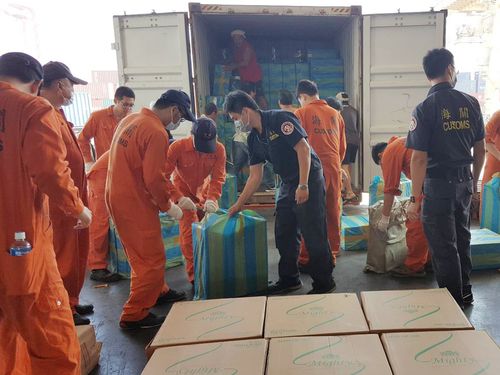
NT$60 million worth of smuggled cigarettes seized in Kaohsiung
Kaohsiung Customs has seized 1.35 million packs of cigarettes worth NT$60 million (US$2 million) on the market that were being smuggled into the country as textiles.
Customs officials zeroed in on three containers that arrived in Taiwan from Vietnam and were to be re-exported to the Philippines, Kaohsiung Customs Director Chen Shan-Ju said Tuesday.
After tracking down their location in the port, customs officials inspected the containers and found they contained 1.35 million packs of duty-free, smuggled cigarettes, Chen said.
The containers arrived in Taiwan with documents identifying their contents as textiles, but they in fact contained cigarettes worth NT$60 million. The cigarettes have been seized for violation of the Customs Anti-smuggling Act and the Tobacco and Alcohol Administration Act, and police authorities are investigating the individuals involved.
http://focustaiwan.tw/news/asoc/201801020011.aspx
Lear More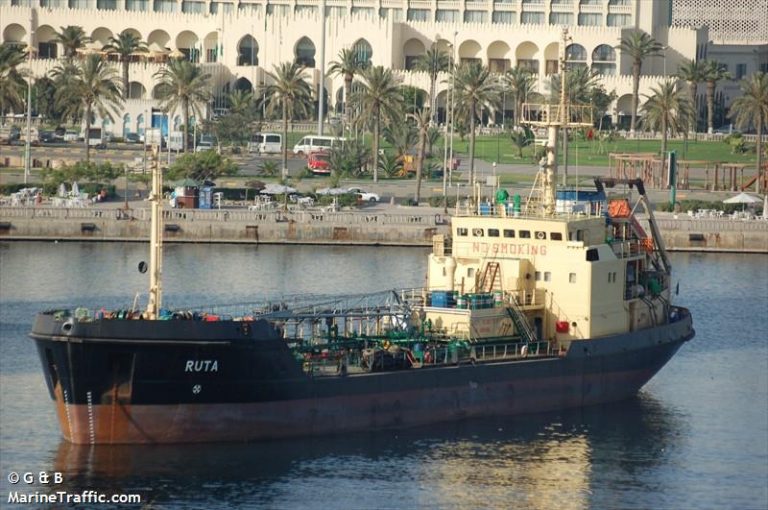
Greek Antiquities Among 3,500 Illegally Obtained Objects Confiscated.
International authorities confiscated over 3,500 illegally obtained antiquities across Europe, including four objects of historical value in Greece.
Under operation “Pandora” that took place across Europe and investigates the illicit trade in antiquities, over 3,500 have been confiscated. The operation was carried out by police authorities from 18 European Union member states, UNESCO, the World Customs Organization, Europol and Interpol.
Operation Pandora began in October and ended in December. Its aim was to crack down on trafficking in Europe of antiquities from the Syria and Iraq war zones. The division of Greek police involved in illicit trade in antiquities participated in the operation. According to Europol data, 3,561 ancient objects were confiscated and 75 people were arrested. A total of 29,340 vehicles and 50 ships were searched. Over 500 objects were found in Murcia, Spain, stolen from the city museum.
In Greece, authorities found an Ottoman tombstone, a Byzantine icon of Saint George and two more Byzantine objects of great historical value. The antiquities were found in the possession of a Thessaloniki businessman.
Lear More
Socio-economic Impact of Illicit Trade Smugglers switching over to low-risk, high-reward goods like cigarettes and fabric/silk yarn – FICCI report.
FICCI CASCADE (Committee Against Smuggling and Counterfeiting Activities Destroying the Economy) in association with the National Academy of Customs, Indirect Tax and Narcotics, (NACIN) organized a capacity building programme on the ‘Socio-Economic Impact of Illicit Trade’ on September 26 at NACIN, Faridabad. The objective was to sensitize officers of Indian Revenue Service on the ill effects of illicit trade.
Ms. Reena Arya, Additional Director General, NACIN, Chief Guest at the programme, stated that illicit trade was a global problem of enormous scale, impacting human lives and virtually every industry sector around the world. India was no exception, suffering significant economic and health & safety consequences as a result of widespread smuggling and counterfeiting in the country.
‘India suffering significant economic consequences due to smuggling’.
India is suffering significant economic, health and safety consequences as a result of widespread smuggling and counterfeiting in the country, said a senior government official on Tuesday.
“Illicit trade is a global problem of enormous scale, impacting human lives and virtually every industry sector around the world — and India is no exception. It is suffering significant economic and health and safety consequences as a result of widespread smuggling and counterfeiting in the country,” said Reena Arya, Additional Director General of the National Academy of Customs, Indirect Tax and Narcotics (NACIN).
Arya was speaking at a capacity building programme organised by NACIN and FICCI’s Committee Against Smuggling and Counterfeiting Activities (CASCADE).
As per FICCI’s CASCADE report, the total loss to thegovernment on account of illicit markets in just seven manufacturing sectors is Rs 39,239 crore in 2014.
Lear More
Almost two million cigarettes seized in Brisbane after massive Border Force sting
ALMOST Two million illegal cigarettes were seized in Brisbane this week in a massive Australian Border Force sting.
On Sunday, an airfreight consignment was examined by ABF officers after arriving into Brisbane.
There were allegedly 1,975,400 cigarettes in boxes inside, that had been falsely declared as dehumidifiers. A further delivery took place on Wednesday at a storage facility in a South Brisbane suburb, where four adults, three men and one woman, were arrested.
The group faced Cleveland Magistrates Court yesterday, the ABF said. The group was charged with tobacco smuggling offences under the Customs Act 1901. ABF Acting Superintendent Robert Ansell said illicit tobacco can be sold at more than 60 times its offshore price
Lear More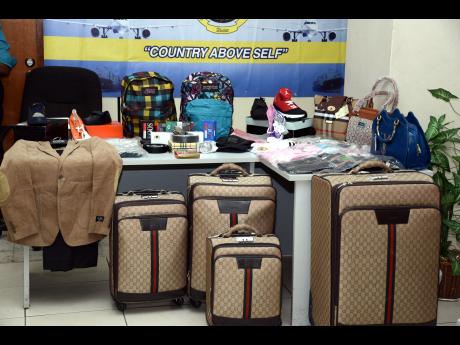
Fake Goods Valued At $65m Seized By Customs In Less Than Two Years
Approximately $65 million worth of infringing products were successfully forfeited and disposed of by the Jamaica Customs Agency (JCA), acting on behalf of brand-holders, for the period January 2016 to September 2017.
Velma Ricketts Walker, the commissioner of Customs, told The Gleaner that backpacks/bags represented approximately $43 million of the total and that the effect of the importation of fake goods could be catastrophic for the country’s fragile economy.
“The threat of international property rights infringement must not be seen as a victimless crime. It can have serious negative effect on the country’s economic growth, impacting of course, the gross domestic product (GDP),” said Ricketts Walker.
“These items, not being the original goods, are cheaper, but could prove disastrous to GDP,” Ricketts Walker added.
She said an additional $500 million worth of goods was seized and is to be disposed of, which points to the tough job Customs has in cracking down on the importation of counterfeit products.
Lear More


